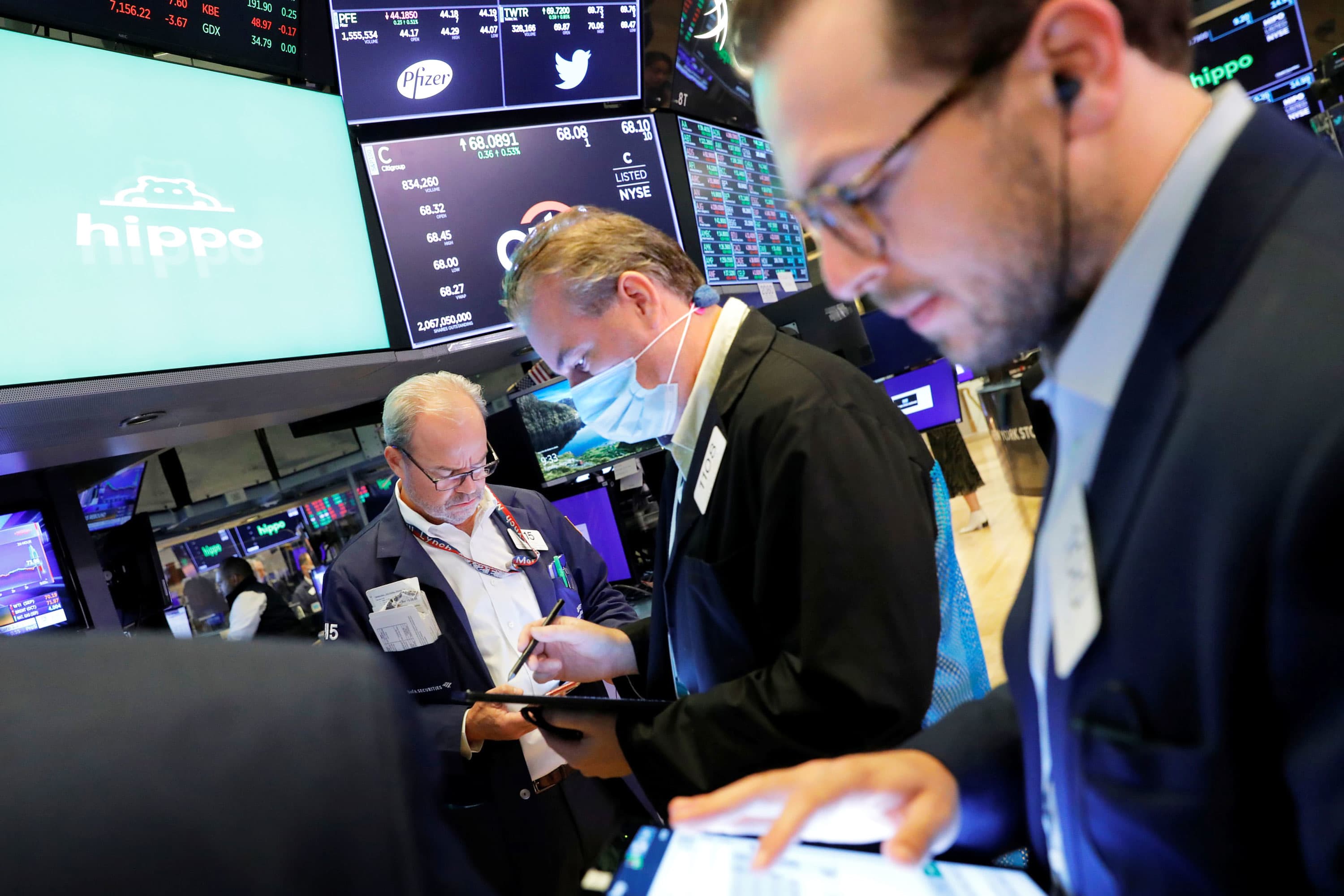U.S. stock futures are flat following the Dow’s 290-point loss

U.S. stock futures were flat Tuesday night after the Dow Jones Industrial Average dropped nearly 300 points on rising investor worries about the state of the economic recovery and the next action by the Federal Reserve.
Dow Jones Industrial Average futures ticked 8 points higher, or 0.02%. S&P 500 and Nasdaq 100 futures climbed 0.05% and 0.08%, respectively.
In regular trading Tuesday, the Dow fell 292.06 points, or 0.8%, to 34,577.57, retreating after it snapped a five-day losing streak on Monday. The S&P 500 lost 0.6% to finish at 4,443.05 and the Nasdaq Composite slipped 0.5% to 15,037.76.
The Dow, S&P and the small-cap Russell 2000 have now traded in the red for six of the last seven days. Tuesday marked the fifth straight day of losses for the Nasdaq. September has historically been a down month for the markets, which have seen an average decline of 0.56% in the month since 1945, according to CFRA. And after eight months of straight gains, strategists say a major pullback could be imminent.
The S&P 500 has continued to move higher throughout the year, dipping below the 50-day moving average only once, according to Fundstrat. Mike Wilson, chief investment officer at Morgan Stanley, told CNBC’s “Fast Money” that could be just the beginning.
“The midcycle transition always ends with a correction in the index,” he said of the S&P 500. “Maybe it’ll be this week, maybe a month from now. I don’t think we’ll get done with this year, however, with that 50-day moving average holding up throughout the year because that’s the pattern we typically see in this part of the recovery phase.”
On Tuesday the Labor Department released data before the bell showing a smaller-than-expected rise in U.S. inflation for the month of August. Consumer prices rose 5.3% from a year ago and 0.3% from July. Stripping out food and energy, the consumer price index was up just 0.1% for the month.
Initially, markets rallied but turned back down after the market open as uncertainty about the timing of the Federal Reserve’s tapering of asset purchases settled in.
“The Federal Reserve will probably delay slowing its purchase of Treasury and mortgage-backed securities despite slight indications that the price increase in durable goods is transitory, as illustrated by the reduction in used car prices,” said Dawit Kebede, senior economist at Credit Union National Association. “This is because we are far from maximum employment,” one of the Fed’s two goals of its dual mandate.
While the data was cooler than expected, inflation is still running hot, according to Brad McMillan, chief investment officer for Commonwealth Financial Network.
“We will likely see inflation run hot for at least the rest of the year and quite possibly into 2022,” he said. “But we do see the change in trend, which shows that the change in basis is taking effect and that the economy is healing.”
Stocks tied to the economic recovery edged lower Tuesday. United Airlines fell 2.1% and Bank of America lost 2.6%. General Electric closed 3.9% lower.
Casino stocks took a big hit as the government of Macau looks to increase regulatory scrutiny over casinos and Chinese health authorities reported a Covid-19 outbreak. Las Vegas Sands fell 9.7%, Wynn Resorts dropped 10.8% and MGM resorts lost 3.9%.
Apple shares closed almost 1% lower after the company introduced the iPhone 13 at its annual product unveiling event.
Wednesday is the final day of the SALT Conference in New York City. In terms of economic data, U.S. import and export prices and mortgage applications data are scheduled to be released Wednesday.




